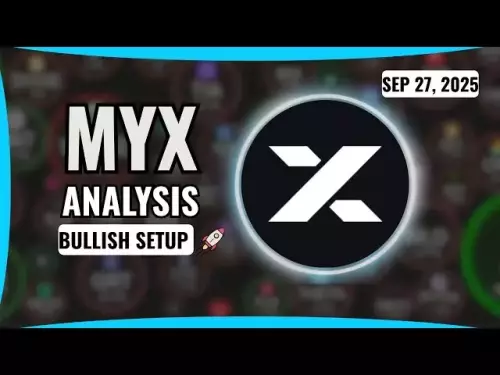 |
|
 |
|
 |
|
 |
|
 |
|
 |
|
 |
|
 |
|
 |
|
 |
|
 |
|
 |
|
 |
|
 |
|
 |
|
Cryptocurrency News Articles
US Senators Introduce Landmark Bill to Regulate Stablecoins
Apr 17, 2024 at 09:00 pm
Senators Gillibrand and Lummis have introduced the Lummis-Gillibrand Responsible Financial Innovation Act, a comprehensive stablecoin regulation bill that aims to streamline the industry and prevent another Terra collapse. It introduces capital and audit requirements for stablecoins backed on a 1:1 basis, and it bans algorithmic stablecoins like Terra USD and Ethena USDe, citing their high risk due to the Terra USD collapse. The bill faces an uncertain path in the divided Senate and would require 60 votes to pass.

U.S. Senators Introduce Comprehensive Stablecoin Regulation Bill
Washington, D.C. - In a landmark move, Senators Kirsten Gillibrand (D-NY) and Cynthia Lummis (R-WY) have unveiled the Lummis-Gillibrand Responsible Financial Innovation Act, a highly anticipated bill designed to regulate the emerging stablecoin industry. The legislation aims to mitigate the risks associated with stablecoins, including the potential for another catastrophic collapse like the TerraUSD debacle.
Sweeping Reforms for Stablecoin Issuance and Oversight
The bill proposes a comprehensive framework for stablecoin regulation, encompassing multiple elements:
- Expansion of Issuer Eligibility: Banks and non-bank trust companies would be permitted to issue stablecoins through dedicated subsidiaries.
- Stringent Capital and Audit Requirements: All stablecoins would be subject to stringent capital and audit requirements, ensuring their 1:1 backing by assets of equivalent value.
- Ban on Algorithmic Stablecoins: The bill prohibits the issuance of algorithmic stablecoins, such as TerraUSD and Ethena USDe, in the United States, deeming them inherently risky.
Lessons from TerraUSD Collapse
The ban on algorithmic stablecoins stems from the disastrous failure of TerraUSD, which wiped out over $40 billion in investor funds. Unlike traditional stablecoins backed by cash or government bonds, algorithmic stablecoins rely on complex arbitrage mechanisms to maintain their peg, making them highly vulnerable to market volatility.
Targeting Ethena USDe: A Case Study
If passed, the Lummis-Gillibrand bill would effectively outlaw algorithmic stablecoins like Ethena USDe in the United States. Ethena USDe, one of the fastest-growing stablecoins with over $2.4 billion in assets, offers attractive returns of up to 17.2%.
However, similar to TerraUSD, Ethena USDe's high yields are generated through a complex cash-and-carry trading strategy that poses potential risks to investors.
Implications for Other Stablecoin Issuers
Other algorithmic stablecoins likely to be impacted by the bill include Frax, Justin Sun's USDD, and Liquity USD (LUSD). These stablecoins employ similar mechanisms to maintain their pegs, raising concerns about their inherent volatility.
Challenges Ahead
While the Lummis-Gillibrand bill has received support from industry experts and policymakers, its passage is not guaranteed. The legislation faces a potentially arduous journey through the politically divided U.S. Senate, requiring 60 votes to advance.
Moreover, the bill must also navigate the highly dysfunctional House of Representatives, which has been known to obstruct bipartisan legislative efforts.
Moving Forward with Caution
The Lummis-Gillibrand Responsible Financial Innovation Act represents a significant step toward regulating the rapidly evolving stablecoin industry. By imposing strict requirements on issuers and prohibiting algorithmic stablecoins, the bill aims to foster a safer environment for investors and minimize the risks of another TerraUSD-like disaster.
However, the bill's fate remains uncertain, and the stablecoin industry will be closely monitoring its progress as it navigates the intricate maze of U.S. politics.
Disclaimer:info@kdj.com
The information provided is not trading advice. kdj.com does not assume any responsibility for any investments made based on the information provided in this article. Cryptocurrencies are highly volatile and it is highly recommended that you invest with caution after thorough research!
If you believe that the content used on this website infringes your copyright, please contact us immediately (info@kdj.com) and we will delete it promptly.






























































